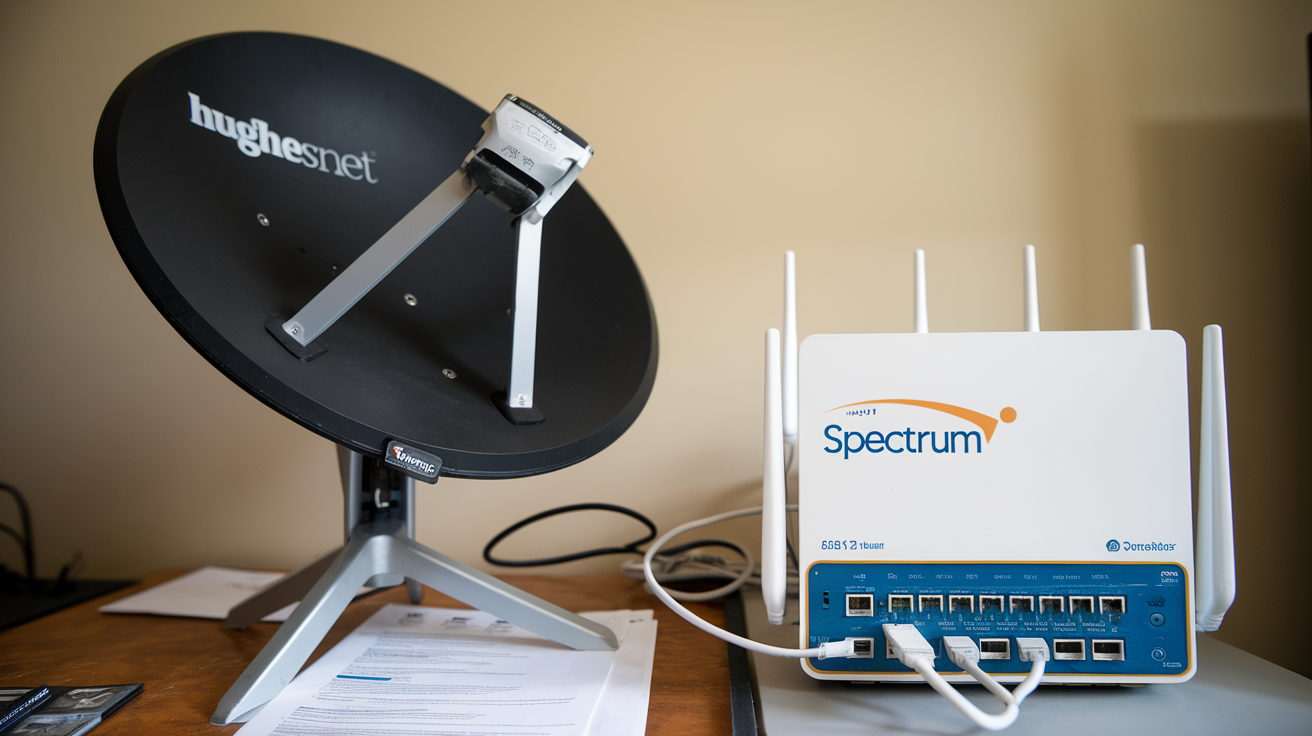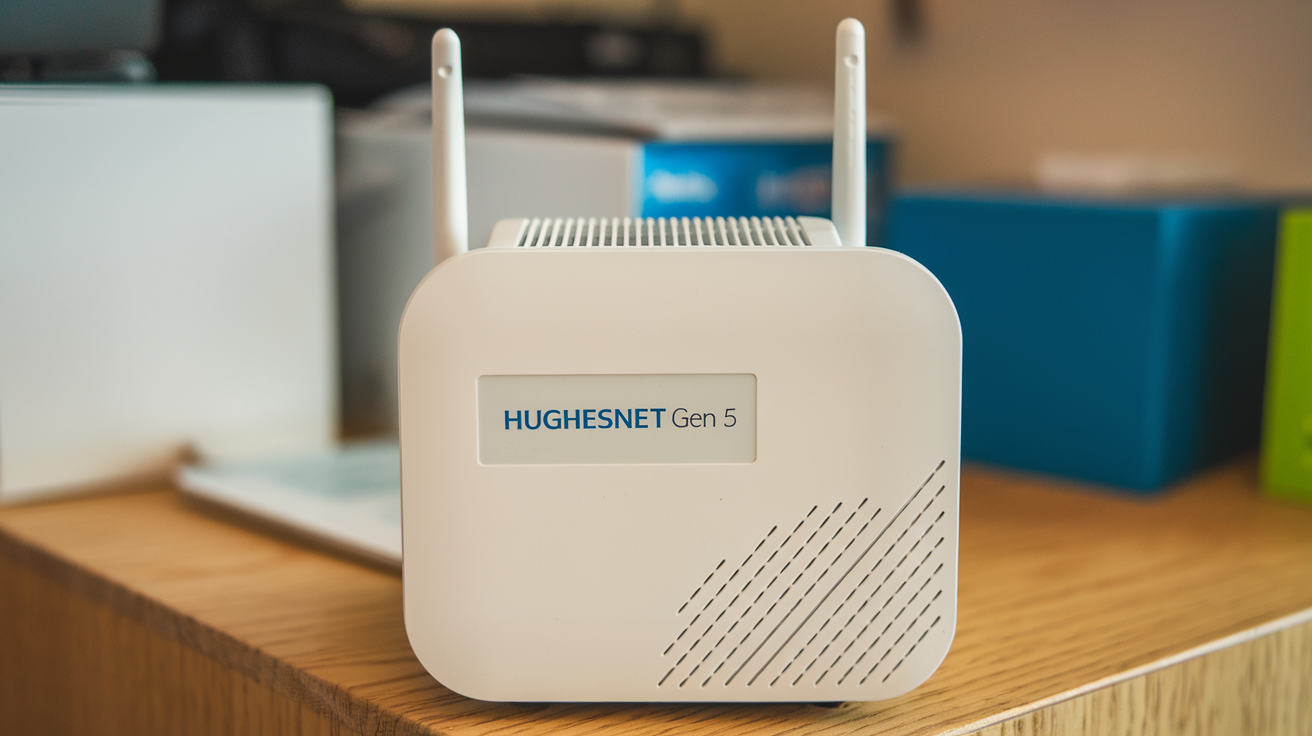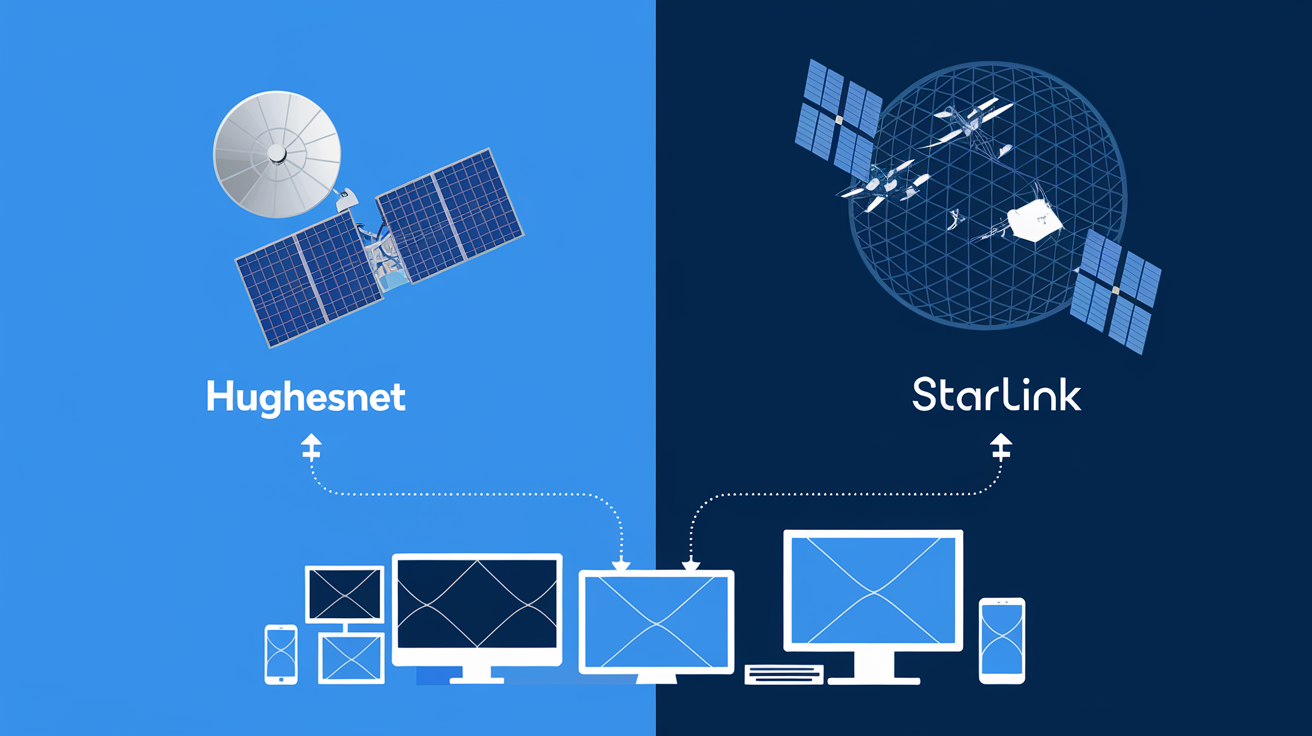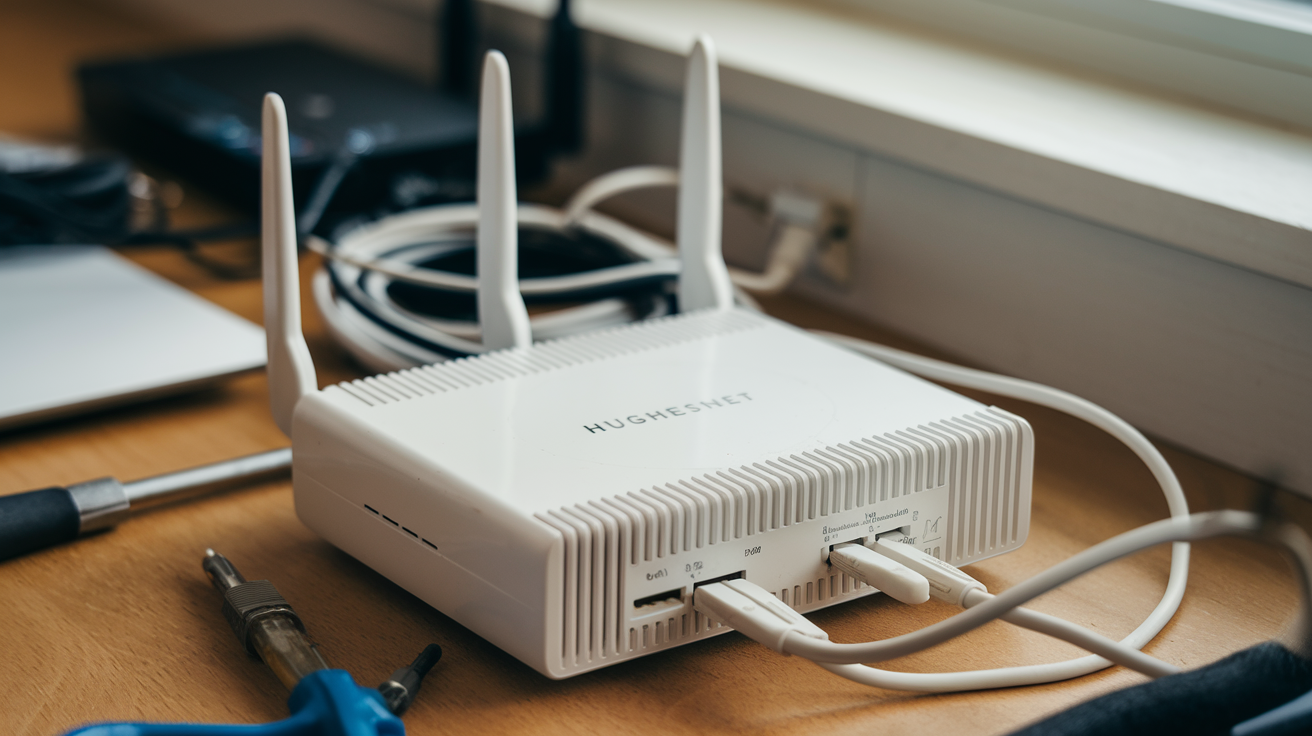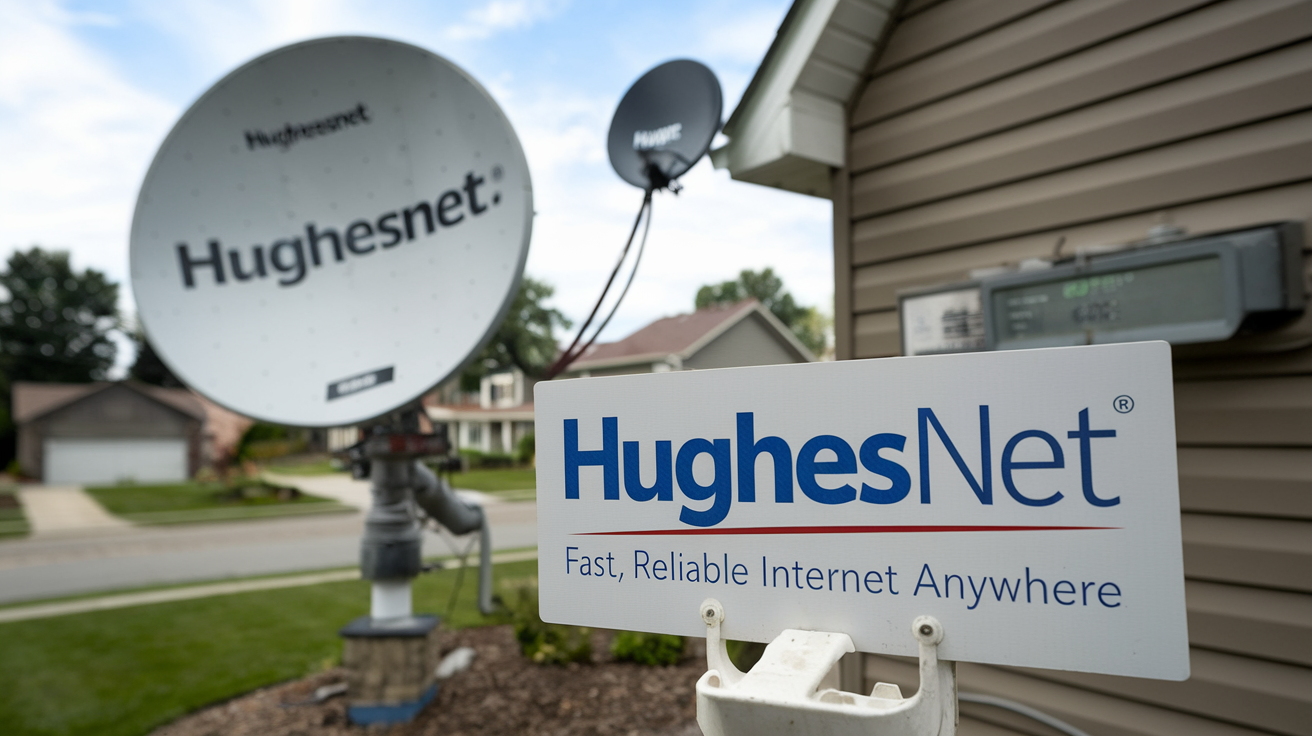
For people living in rural areas, finding good internet service can be hard. There are often few choices available, leaving residents with slow and unreliable internet or no internet at all. Satellite internet is a strong solution to help fix the digital divide. It can provide high-speed internet to rural areas that lack cable internet and other options. HughesNet is a well-known name in satellite internet because it is available in many places. But is HughesNet the best choice for rural internet?
Understanding HughesNet's Place in Rural Internet Options
HughesNet is a satellite internet provider. It offers internet service using satellite connections instead of cable or fiber optic lines. This wireless technology allows them to reach almost any place that is covered by the satellite. It works well even in remote areas where physical systems can't go.
HughesNet has different internet plans for different needs and budgets. Every plan includes professional installation. This helps make sure you have a strong connection for good service. However, satellite internet does have some drawbacks. You might experience slower speeds, high latency, and data limits. So, it's important to know both the good and bad sides of a HughesNet internet plan before you sign up.
The Basics of Satellite Internet Technology
Satellite internet uses a system of satellites moving around the earth to send and get internet signals. When you go online, your request goes from your device to your modem. Then, it reaches a satellite dish set up at your home. This dish sends the signal about 22,000 miles up to a satellite that stays in one place above the Earth.
The satellite sends the signal to a ground station, which is also called a teleport. This station sends the needed information back to the satellite. The satellite then sends the data back to the dish at your home. Finally, it travels to your modem and then to your device.
This is a simple way to explain how it works. The key point is that your data has to travel thousands of miles to get where it needs to go. This long distance is why there is often higher latency with satellite internet. This can make things like online gaming and video calls more difficult.
How HughesNet Fits into the Rural Internet Landscape
Reliable internet access is now a necessity. It connects us to work, school, friends, and family. However, it has been hard for many internet providers to offer good internet service in rural areas. Running cable or fiber optic lines across long distances to reach a small number of homes is often too costly for them.
Satellite internet is a good answer to this problem. If your home is in the provider’s coverage area, you can get service even in remote places. HughesNet provides coverage across all 50 states. It offers reliable service where DSL, cable, and fiber might not reach.
Analyzing HughesNet's Service Offerings
HughesNet wants to give people in rural areas reliable and fast internet. Their plans and prices are friendly for those on a budget. However, it’s important to look past the listed download speeds and data caps to understand what being a HughesNet customer is like.
There might be issues like data caps and service interruptions during bad weather. The company tries to reduce these problems with different data management tools. Let's take a closer look at HughesNet's internet plans. This will help you decide if this service is the right choice for you.
Overview of Plans and Pricing
HughesNet currently offers three internet plans, all with the same download speeds of up to 100Mbps. Prices start at $50 per month for the entry-level plan, but all plans come with a promotional price for the first 12 months of service. You’ll also have an equipment rental fee of $15 per month. Here’s a closer look at HughesNet internet plans.
|
Plan |
Starting monthly |
Max download speeds |
Max upload speeds |
Priority data |
Equipment Fee |
|---|---|---|---|---|---|
|
Select |
$50 ($75 after 12 months) |
50Mbps |
5Mbps |
100GB |
$15 monthly or $300 purchase fee |
|
Elite |
$65 ($90 after 12 months) |
100Mbps |
5Mbps |
200GB |
$15 monthly or $300 purchase fee |
|
Fusion |
$95 ($120 after 12 months) |
100Mbps |
5Mbps |
200GB |
$20 monthly or $450 purchase fee |
Data Caps and Management Features
While HughesNet says its plans offer unlimited data, there’s a catch. Each plan has a monthly limit for priority data. After you reach this limit, your internet speed might slow down until your next billing cycle starts.
The good news is that HughesNet has some ways to help you keep track of your internet usage. You can use the Bonus Zone feature, which gives you 50GB of extra data at slower speeds. This extra data is available between 2 a.m. and 8 a.m. You can take this time to download large files or schedule updates, so they don’t count against your priority data.
Performance and Reliability
Speed and reliability are very important when you are picking an internet plan. Internet speed, usually shown in megabits per second (Mbps), tells you how much data can be moved in one second. This greatly affects your online experience. For instance, streaming movies or playing video games needs faster speeds, but checking email or browsing can do fine with slower ones.
Although satellite internet has often been seen as slow, HughesNet tries to offer faster speeds that are close to what DSL and some cable internet plans provide. The company knows that speeds might change, especially in places where 4G LTE is not strong. This sometimes creates issues for users using data-heavy apps. Let’s explore HughesNet’s performance and reliability more closely.
Speeds and Connectivity in Rural Areas
HughesNet offers consistent download speeds up to 25Mbps and upload speeds up to 3Mbps with its standard plans. After launching the Jupiter 3 satellite, HughesNet created faster options that allow downloads up to 100Mbps. Still, the company admits that actual speeds can change, especially for customers in areas with limited 4G LTE coverage.
These increased speeds are said to be four times faster than what was available with the previous satellite. The goal is to meet the growing needs of internet users. With download speeds up to 100Mbps, rural customers can browse the web, study or work from home, stream shows, and enjoy video chats without many interruptions.
Customer Experiences and Service Reliability
High latency is a common issue for people using satellite internet. However, HughesNet customers face less of a problem with its Fusion plans. These plans use a mix of satellite and fixed wireless connections. This helps to reduce lag time and creates a better internet experience. High latency is not a big deal for browsing the web or checking emails. But for gamers or those who need smooth online meetings, it can be a real hassle.
HughesNet says it has a 99.9% uptime. This means the service is mostly reliable with few outages. Still, like other satellite internet providers, they admit that bad weather can disrupt the signal between the satellite and your dish. This may lead to slower speeds or even service drops in some cases.
Comparing HughesNet to Other Rural Internet Providers
HughesNet is a leading name in rural internet, but it's not the only choice for internet service in remote or underserved areas. DSL uses existing telephone lines to provide internet. It often covers a larger area than cable but does not work as well. Another option is fixed wireless internet. This newer type sends data wirelessly from local fixed wireless towers to a receiver in your home.
As technology improves and more people want reliable high-speed internet, new providers are entering the market. They aim to reach even the most distant locations. Let’s look more closely at how HughesNet compares to other rural internet options.
Satellite vs. DSL vs. Fixed Wireless
Each type of internet connection has good and bad sides. Satellite internet, like HughesNet, has the most widespread access. It can reach places where DSL and fixed wireless internet can't. However, DSL is usually more dependable than satellite and often costs less each month. Fixed wireless internet is another choice. It can provide speeds similar to cable internet at a comparable price.
Yet, limited access is still a problem for both. The network needed for DSL, like telephone exchanges and lines, is not as common as satellite internet. Also, fixed wireless internet needs local fixed wireless towers to be close to your home for the best service. If you are outside the service area of a fixed wireless provider, fast internet speeds won't matter. In this case, satellite internet may be a better choice.
Key Competitors: Viasat, Starlink, and Others
The need for fast internet in rural areas is growing. As a result, new companies are entering the market. This means more choices for people. Viasat is one of these satellite internet providers. It has plans with speeds that are similar to HughesNet. Some of Viasat's plans are even faster. While Viasat offers more plans, both it and HughesNet have similar issues. They struggle with latency and data limits, which makes it hard to decide which is better.
Then, there’s Starlink, which is gaining attention for its fast-growing satellite internet service. Starlink uses a group of satellites that are closer to the Earth, allowing for quicker internet speeds than traditional satellite internet. However, Starlink doesn’t cover as much area as HughesNet and Viasat yet. The company is working to grow its coverage, so it might soon become a real competitor in the market.
Conclusion
In conclusion, HughesNet is a good choice for rural internet. They use satellite technology and offer competitive pricing and reliable service. While you might think about data caps, their performance and connectivity in rural areas make it a strong option. Looking at other providers like Viasat and Starlink can help you find the best one for your needs. Before making a choice, think about installation requirements and how weather might affect service. If you want steady internet access in rural areas, HughesNet could be the answer you need.
Call (888) 797-3141 and Start Your Hughesnet Internet Service Now!
